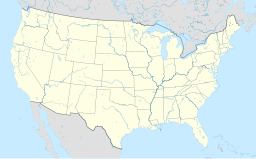Gladwyne
| Gladwyne | |
| Unincorporated community | |
| Country | United States |
|---|---|
| State | Pennsylvania |
| County | Montgomery |
| Township | Lower Merion |
| Elevation | 338 ft (103.0 m) |
| Coordinates | 40°2′N 75°17′W / 40.033°N 75.283°WCoordinates: 40°2′N 75°17′W / 40.033°N 75.283°W |
| Area | 4.9 sq mi (12.7 km2) |
| - land | 4.9 sq mi (13 km2) |
| - water | 0.0 sq mi (0 km2), 0% |
| Population | 4,050 (2000) |
| Density | 820.0/sq mi (316.6/km2) |
| Timezone | EST (UTC-5) |
| - summer (DST) | EDT (UTC-4) |
| ZIP code | 19035 |
| Area code | 610 and 484 |
Gladwyne is a very affluent suburban community in Montgomery County, Pennsylvania, United States along the historic Philadelphia Main Line. In 2011, Gladwyne was ranked the 7th richest ZIP code in the country in a study by Bloomberg BusinessWeek. The population was 4,050 at the 2000 census. As Gladwyne is neither an incorporated area nor a census-designated place, all data are for the ZIP code 19035, with which the community is .
There are four churches, a synagogue, a library, two schools, the Gladwyne fire company, the Gladwyne Civic Association, the Stony Lane Swim Club, playgrounds, parks, businesses, and retail shops within the confines of Gladwyne. The historic Guard House Inn is also located within Gladwyne. The village is also home to the Philadelphia Country Club on its periphery, Merion Cricket Club, and to The Courts, a private tennis club. Because the town was early to preserve space and has received many donations of land, developers have not subdivided the area into more typical suburban developments, so the area retains a mixture of farm, colonial town, and late 19th/early 20th housing uncharacteristic of other Main Line communities.
Banker James Crosby Brown of Brown Brothers & Co. built a 185-acre (0.75 km2) estate that later was divided into non-divisible (deed-restricted) lots of three to 17 acres (6.9 ha), an early act of (partial) preservation that set an important precedent for future acts by both individuals and the township. The Lower Merion Conservancy plays a significant role in protecting the local heritage and maintains its office in Gladwyne's Rolling Hill Park.
Like the rest of the region, Gladwyne, known until 1891 as "Merion Square", originally was settled by Welsh Quakers beginning in 1682. It was given its new name to lessen confusion with the many "Merions" in the area, including the town of Merion, Lower Merion Township, and Upper Merion Township, and in imitation of the Welsh names of adjoining towns, although its new name was meaningless in Welsh. Twenty-four mills operated along Mill Creek through the beginning of the twentieth century, and the major road through residential Gladwyne runs along the banks of the creek. After the American Civil War and following construction of the Pennsylvania Railroad's Main Line west from Center City, wealthy Philadelphians located many of their summer homes there.
...
Wikipedia



